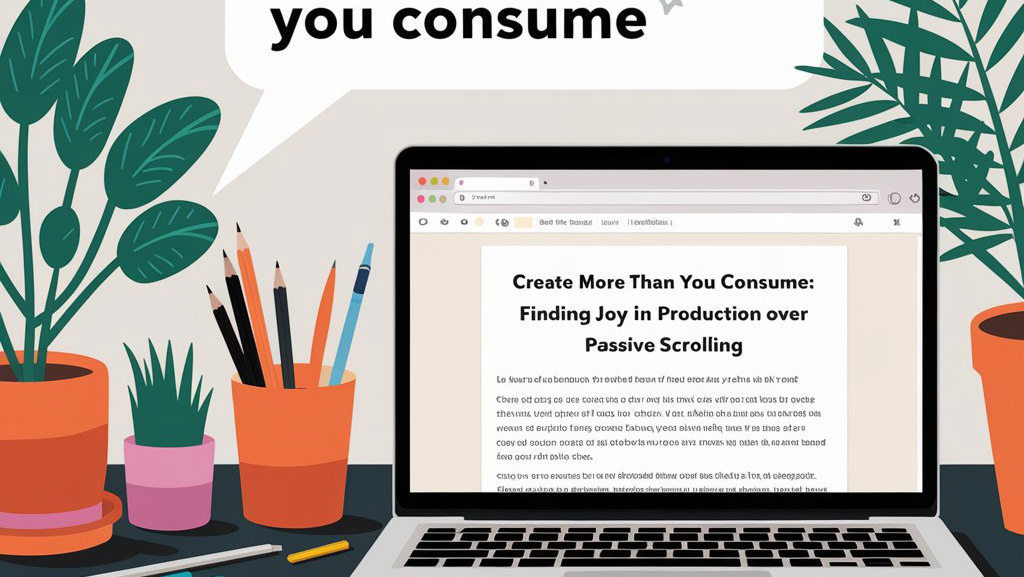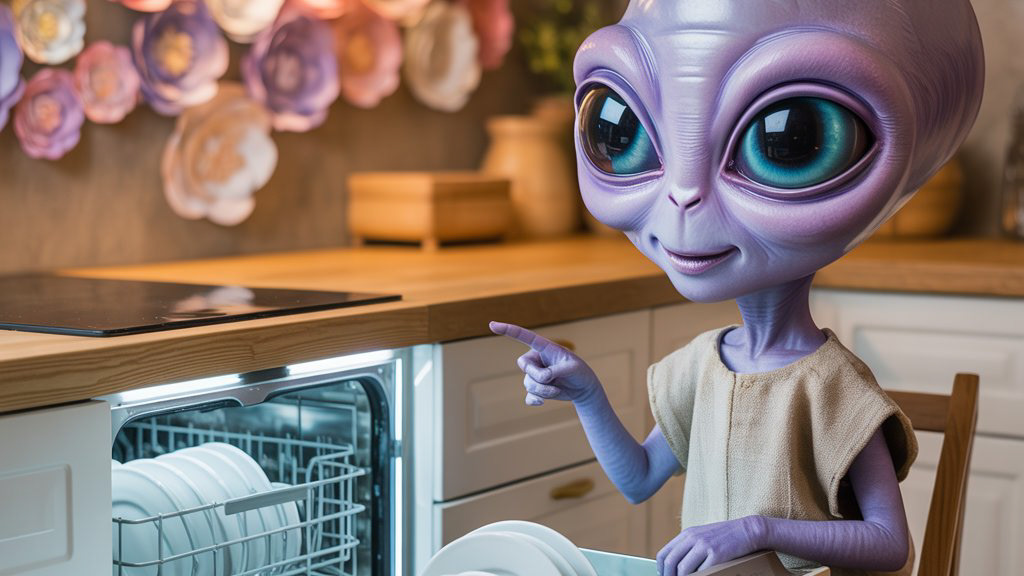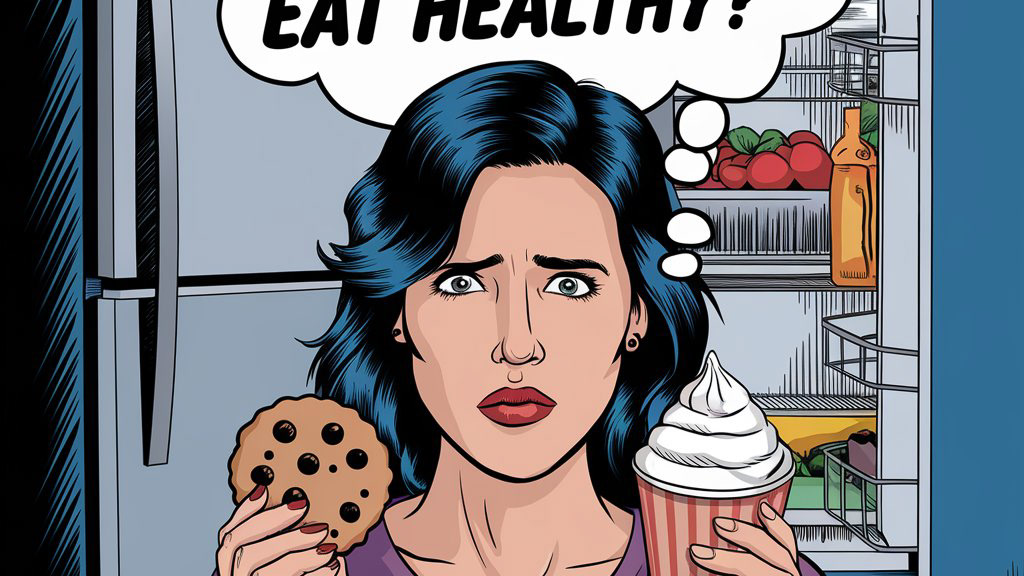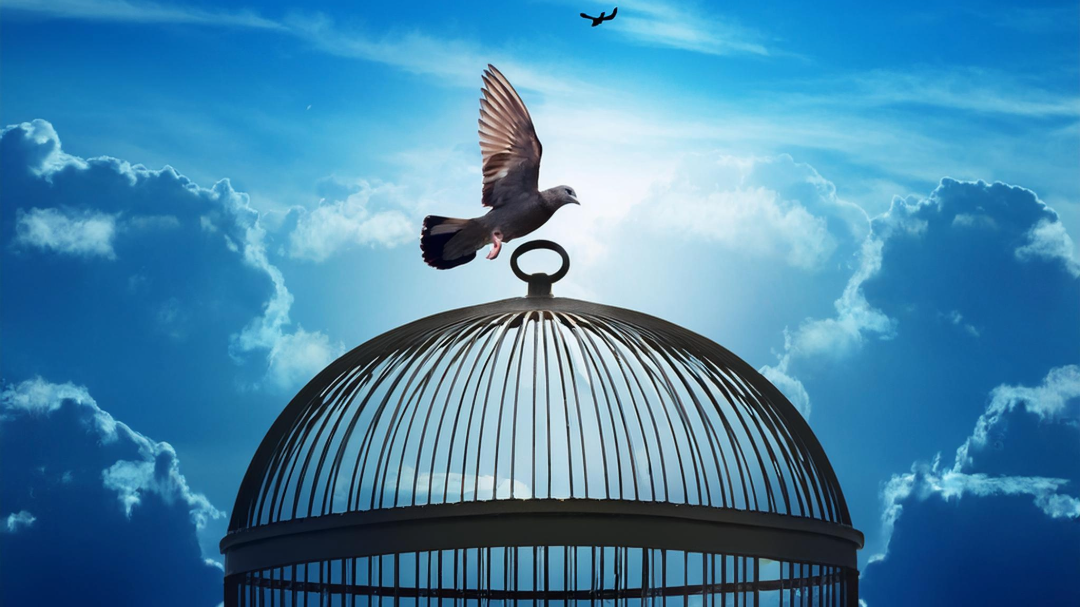When I was six years old, I woke up in the middle of the night to face the silhouette of a tall man standing at the foot of my twin bed. I screamed, and I screamed. He didn't move. Neither of my parents came quickly enough. I turned my head to look out my bedroom door for them, and when I turned back, the man was gone.
My dad checked under the bed, in the closet, and promised me that no one was there. It was simply my eyes playing games with me.
To this day, I have a fear of not just the dark but being safe while I sleep. It plagues me to the point that I hate sleeping alone, and if I am alone, I need the lights on and a clear view of the bedroom door as well as any closet doors. This can cause a game of twister in the bed if they are on opposite sides of the room! And big confessions, despite being an adult, I still sleep with my head halfway under the covers and feel anxiety when it's time for bed.
Recently, I came across an interview with world-leading neuroscientist Dr. Lisa Feldman Barrett, who explains that your brain isn't just reacting to fear; it's predicting it.
This insight made me realize that every time I put my head down on the pillow and turn off the light, my mind is predicting that I might wake up to find someone standing over my bed while I am sleeping. I know—how disturbing is that! The good news is that Dr. Barrett offers hope: because these predictions are learned, they can be updated. This understanding gives us more agency and control over our experience than we might think.
When I explored this concept further, I realized that yes, my brain is constantly making its best guess about what will happen next, preparing my body for action. You can even test this yourself: Close your eyes and think about a sour apple. Think about holding it in your hand, how it feels, how it smells. Then imagine taking a bite, how it feels for your teeth to pierce the skin, the tangy sour taste when it hits your tongue. Did the saliva in your mouth just increase? That is your mind predicting. It does this before we eat. That's why we say "we are so hungry our mouth is watering"—our body is predicting that we're going to eat and preparing based on past experiences.
With my fear, it seems my brain is stuck because it's still trying to protect me. It continues to predict danger in situations that are only similar to past threats, even when the actual threat is no longer present. Turning off the lights and being alone triggers this association. These persistent predictions keep me in a state of fear or anxiety, even when it's not warranted, feeling automatic and beyond my control.
Since fear predictions are learned, they can be unlearned and updated. We can't change the past that initially created the fear, but we can create new experiences in the present that become the foundation for different future predictions. And you know how much I value planting new seeds of thought! Of course, this requires effort and practice, much like learning any new skill, but I'm on a mission to grow, and this has been haunting me for far too long.
Based on this interview, I think I have a plan to move forward and finally overcome this fear, with the first step being to Gain Understanding and Awareness. It gives me a lot of peace just knowing that the brain is a predictive organ and that fear is a prediction—not always an objective truth about the present moment. This helps me to see that I have more control than I think. This shifts me from feeling like a puppet reacting to a childhood fear to being an adult making new meaning from this experience. I can create new associations with being alone in the dark that aren't fear-based
The next step is important because I will need this in order to succeed in confronting this fear. I need to Build Physical Resilience. Updating predictions, especially deeply ingrained fear predictions, requires metabolic energy. Stress, lack of sleep, poor nutrition, and uncertainty tax the brain's "body budget," making it harder to learn new things and easier to stick to rigid, old predictions. I have experienced this when trying to break a habit and feeling like I deserve a pass because I am too tired to stick to the new discipline. In order to conquer this fear, I need to get enough sleep, eat nutritious food, stay hydrated, continue exercising regularly, and meditate. Managing these basics will be needed to improve my metabolic resilience and give my brain the energy needed to update fear responses.
Next is a big step. I will need to Create Prediction Errors Through Strategic Exposure. This is a core mechanism for changing predictions. I will need to provide my brain with sensory signals that contradict its fear predictions. Don't I do this every night when I go to bed? The truth is no. I sleep next to my husband which really makes a big difference with my fear. It isn't just being in the dark. It is being alone in the dark. Just the thought of deliberately and safely exposing myself to situations that trigger my fear in a controlled way makes me uncomfortable, but I know the key is to start with baby steps. I certainly don't want too strong a dose of prediction error all at once!!! For me, this means exposing myself to secluded darkness for short periods. By experiencing the situation without the predicted negative outcome occurring, I'll teach my brain that its prediction was wrong, allowing it to learn a new, less fearful association. As I write this, I can barely imagine doing it—just the thought causes anxiety—but I'm committed to trying.
Next I am supposed to Shift my Attention. While sitting in a dark place (my walk-in closet) by myself for a short period of time, I am going to try to redirect my focus. Since my brain uses sensory information from my body and the world to select which prediction to act on, I can influence this by changing what I pay attention to in the moment. If I sit in the dark and think happy, loving thoughts about my grandchildren or visualize creating beautiful flowers, safe and happy thoughts, this will help prevent me from getting lost in fearful thoughts driven by old predictions.
Lastly, Dr. Feldman Barrett suggests to Leverage the Power of Social Connection. Humans are social animals, and our nervous systems are interconnected. Healthy social support can help regulate your nervous system and positively impact your body budget. Being with trusted individuals can make you feel safer and more resilient, making it easier for your brain to process prediction errors and update fear associations. Perhaps I could start by sitting with someone in the dark until I become comfortable with that. Then have them sit outside the closet and talk to me while I remain alone. I know this sounds childish and irrational, but isn't that the nature of fear? Research shows that social support can literally make metabolically taxing situations less draining.
So here is the bottom line: Overcoming fear is an active process of working with your predictive brain. By understanding how fear is constructed from learned predictions, taking care of ourselves, intentionally creating new experiences that contradict old patterns, managing our attention, and seeking social support, we can gradually reshape our brain's predictions.
This isn't about eliminating all challenges or discomfort, but about building resilience and gaining the power to choose how we make meaning of our experiences, allowing us to live more intentional and joyful lives. I no longer want fear to stop me from doing things and I hope you take this journey with me.
Please share with me via my contact form how and what fears you plan to conquer. I feel like we can support each other and can build a very joyful, creative community!
Remember, stay aware and stay rooted in joy.
Share your thoughts!
Thank you!











